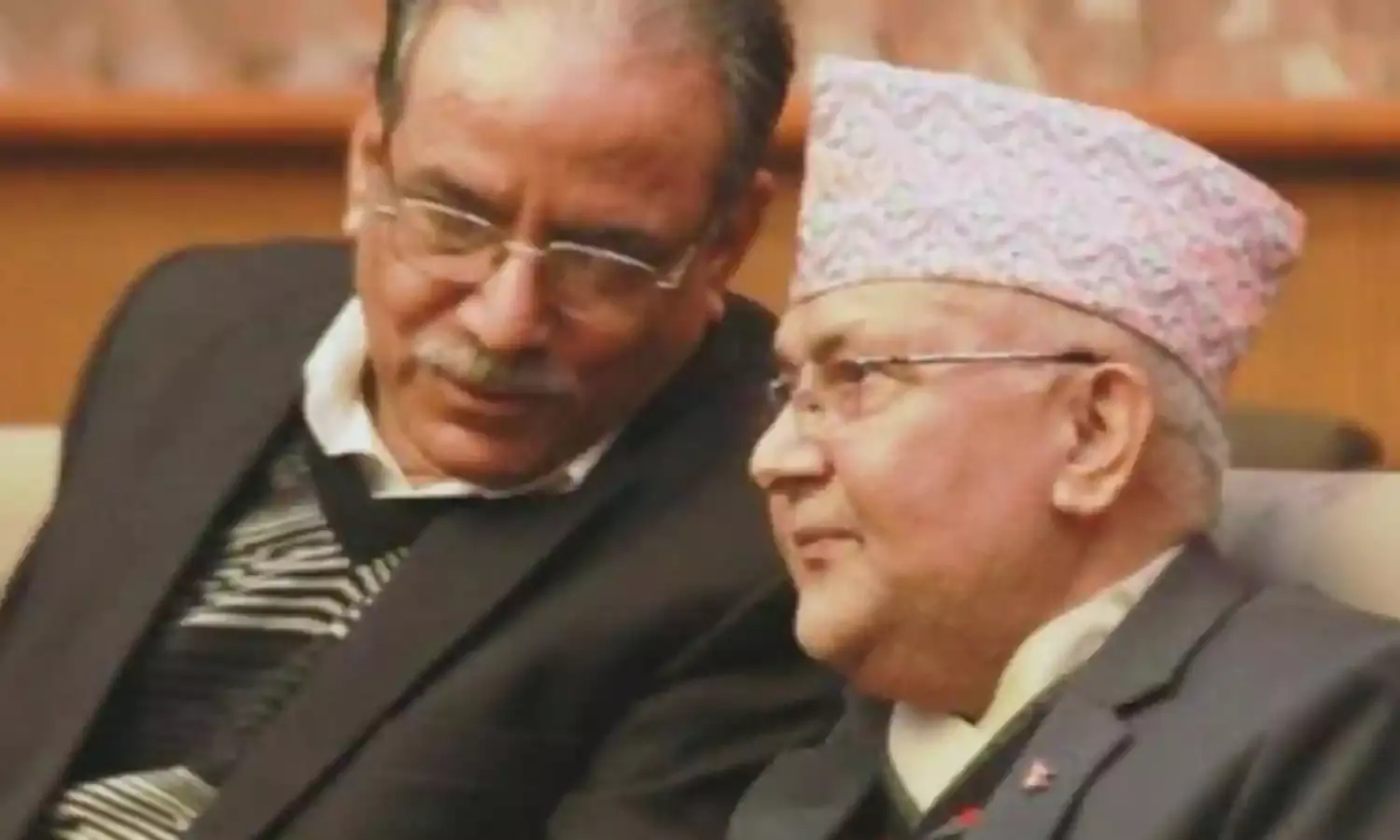Left Sweeps Nepal: China Beckons As India Watches
KP Oli frontrunner for Prime Minister post.

KATHMANDU: After Maldives, Nepal seems to be all set to open doors on China with the united Left alliance winning 40 of the 49 parliamentary seats. The resounding mandate has reduced the ruling pro-India Nepali Congress to just six seats, and given the Left the mandate to implement and strengthen Nepal’s new federal constitution based on secularism and democracy.
The Communist Party of Nepal-Unified Marxist Leninist (CPN-UML)won 28 seats and CPN Maoist-Centre 12 seats, have been voted in by Nepal that struggled out of monarchy and into a period of turbulence during which the new Constitution was written and adopted. And now for the implementation clearly the people of Nepal have reposed faith in the Left alliance that has been given the stability required to move ahead on this front. A stability that should now enable the two communist parties to withstand the buffeting that a Left government in Nepal is expected to receive from opposing forces in Washington, New Delhi and of course other world capitals.
In the process there is speculation that the new government will bring Kathmandu closer to Beijing. However, while this may or may not be so as India remains a player in Nepal, it is clear that New Delhi will now be expected to deal with Nepal as a sovereign country, capable of taking its own decisions. And what Nepal sources described as “bullying” by the Indian government will be a thing of the past.
It might be recalled that when Prime Minister Narendra Modi came to power, relations with Nepal hit two major bumps. The PM had decided to address at least two public meetings on his own in the neighbouring country, and hand out bicycles to the crowds. The Nepal government which had given permission for these Modi rallies, balked in the face of local opposition, and announced that its own leaders would be holding the meetings along with PM Modi. Anyways this did not work and left New Delhi reportedly very “displeased.”
The second, far more serious intervention by New Delhi was its botched attempt to get Nepal to not include “secularism” in its new Constitution. Envoys were rushed to Kathmandu to read the riot act to then Prime Minister K.S.Oli but as he pointed out , it was too late and India had woken up when the deed had been virtually done. This was seen as “defiance” in New Delhi with a massive blockade of oil and essential commodities hitting Nepal soon after. India officially denied involvement, but a wave of resentment swept through Nepal where anti-India protests took place, and the anger touched new heights. For the first time the possible consequences of over-dependence on India hit Nepal, and sources from Nepal told The Citizen at the time that then PM Oli had decided to branch out and extend his options. China, thus, was the natural ally.
“Never again,” the sources said insisting that Nepal would now strengthen trade ties with China. Pacts on energy and oil have been signed now, with China building a railway in Nepal, and strategic roads one of which will be from Tibet to Nepal that could also serve as a runway for aircraft if required.
The current government has apparently lost the people, with its pro-India positioning not fetching it any brownie points as the election results so evocatively demonstrate. The Nepali Congress has been reduced to an ineffective level in these polls.
KP Oli is currently the frontrunner to become the Prime Minister of Nepal. He is close to Communist leader Prachanda (Pushpa Kamal Dahal) who was the Prime Minister for two short spells after the Maoists came unexpectedly to power.He found it difficult to survive, with the sustained attack on him, his colleagues and his party. This time around, sources pointed out, the new government would not face the pressure to the same extent as it has a stable majority in Nepal’s parliament. And will be able withstand efforts to break the Left from within that will now not be as easy as before.
Besides, as the sources pointed out, the communist leaders have evolved,learnt from their mistakes and can be expected to give a direction to the government as it moves into the implementation stage of its Constitution. That it was managed to be written at all, and kept free of religiosity is no mean achievement in Nepal.
It is clear that the mandate will be used in part by the new dispensation in Nepal to strengthen relations with China. Maldives has just dealt a blow to New Delhi by signing trade pacts with China that the Indian Foreign Office had not even seen coming. The neighbouring nations for whom India had represented the proverbial last word, have moved to create space for China that has already emerged as a major player in the South Asian block.



